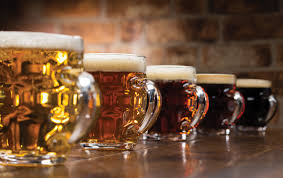
The National Authority for the Campaign Against Alcohol and Drug Abuse (Nacada) is set to raise the legal drinking age in Kenya from 18 to 21 as part of new government measures to curb rising alcohol and drug abuse among the youth.
The change is outlined in the 2025 National Policy on Alcohol, Drugs and Substance Abuse, which was approved by the Cabinet on June 24. The policy proposes a series of reforms targeting alcohol access, marketing, and distribution across the country.
As the government prepares to implement the changes, Kenyans have expressed mixed reactions:
“This is a good move. At 18, many are still in school and not mature enough to handle alcohol responsibly. Raising the age to 21 could protect our children,” said Mary, a parent and teacher.
Odhiambo, a shop owner in Westlands, shared a similar view. “We’ve seen too many young people falling into addiction early. This law might not solve everything, but it’s a step in the right direction. Honestly, I’ve seen what alcohol does to young people. If this law saves lives, I support it. Maturity takes time.”
However, Atieno, a university student, believes enforcement alone will not work.
“There should be more awareness in schools and campuses about the long-term effects of alcohol. Start those conversations early; don’t just wait until someone turns 18 or 21.”
Some, like Brian, also a university student, feel the proposed age limit is unfair.
“We can vote, marry, and go to war at 18. Why can’t we drink responsibly? This feels like taking away our freedom,” he said.
Some bar owners also expressed concerns about the potential economic impact of the policy.
“This will reduce business. Those aged 18 to 20 make up a big part of our customers,” said Peter, a bar owner.
“Most of them are college students or young workers who come in for a drink after class or work. If this age group is cut off, we lose a big chunk of our income. It’s already hard with taxes, licenses, and competition from unregulated outlets.”
Some citizens pointed to Kenya’s culture around alcohol, saying it glamorises drinking from an early age.
“You switch on the TV or scroll on social media, and drinking is made to look cool,” said Rachel, a mother of two.
“Media regulation and role models matter. It’s not just about who can buy alcohol legally; it’s about the message we’re sending every day.”
Bar owner Dennis Mwangi offered a different perspective.
“We follow the law in checking IDs, but fake IDs are everywhere,” he said.
“Instead of just increasing the age, the government should crack down on unlicensed bars and brewers selling to minors in villages and slums.”
Others stressed the need for alternatives to alcohol for the youth, especially in low-income areas.
“Open more sports centers, tech hubs, and job programs,” said Joel, a boda boda rider.
“If you’re bored, broke, and stressed, drinking becomes the easiest thing to do.”











